By Jeff Reeves
Their daily work may be different, but these younger actuaries share many perspectives about the big picture—and where the profession is headed.
The job of actuary has become better known in recent decades. But in many ways, the stories of how and why our younger members find their way to this dynamic profession show us our future.
From the time when the Actuarial Standards Board was established 30 years ago to the more recent uniformity in the Code of Professional Conduct adopted by the American Academy of Actuaries and the other U.S.-based actuarial associations in 2001, standards of conduct, practice, and qualification have been codified to assure commonality of professional approaches to practice, provide the infrastructure for a robust self-discipline process, and encourage the public’s trust in the profession.
Now we are increasingly aware of organizations of all sizes and stripes embracing the era of “Big Data” and the idea of making decisions based on numbers and facts instead of gut feelings.
As a result of these big evolutions and countless other smaller changes, the old cliché of an actuary as a quiet numbers wonk in the back office is no more. Instead, actuaries are now more likely seen as partners and problem-solvers, and a kind of “translator” of data who must communicate effectively even as they calculate accurately.
“I believe that actuaries are more aware today that they are more than technicians,” said Bob Beuerlein, past president of the Academy, noting that the profession is much more about “the opportunity to turn data into information that the public can put its trust in.”
The development of shared professional standards was important to these changing perceptions of the profession, Beuerlein said, but didn’t single-handedly reshape the last few decades for actuaries.
“We can say that the actuarial standards form a good basis for our professionalism, along with the Code of Professional Conduct and discipline system,” he said. “However, if standards are viewed only as pieces of paper in a book, we have not accomplished much. The challenge is to put professionalism into action. As with anything, if we don’t apply the standards, we will forget what they mean. Treating the standards as living documents that are a part of our daily work is important.”
In other words, if the recent past has been defined by the shared standards that have been put in place for the profession, the future of the profession will be defined by those actuaries who put the spirit of those standards into practice and maintain them as time goes on.
“Most actuaries were attracted to the profession because of their ability with math,” said Beuerlein. “However, while actuaries are strong with math, the real value that we bring to the world is our ability to be a contributing business person in our organizations through our professional use of our analytical skills.”
To highlight this spirit of real-world impact and safeguarding the public trust, I recently interviewed nine actuaries under the age of 40 who together represent the next generation of the profession. Though they all share a love of figures, more important is that each of these nine actuaries embodies the spirit behind the all-important professional standards that now drive the profession—and the very bright future of actuaries everywhere.
(The conversations below took place largely via email. They have been lightly edited for clarity.)
LIFE
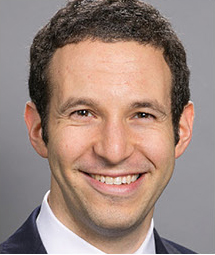
Benjamin Slutsker, MAAA, FSA Corporate Vice President & Actuary, New York Life
In his eight years in varying roles at New York Life, Benjamin Slutsker has worked on a host of areas within the firm’s life insurance business—from pricing bank- and company-owned life insurance to individual life financial reporting to lead of principle-based reserving (PBR) implementation. He’s currently responsible for actuarial regulatory oversight.
“As I grew more in my career, the work slowly transitioned from a job to an intrinsically motivating interest, and became more fun,” he said.
Slutsker is currently active on a number of working groups and committees within the life segment.
Age: 30
Current employer and location: New York Life Insurance Company, New York City
Current job title: Corporate Vice President & Actuary; Responsible for Actuarial Regulatory Oversight
Actuarial volunteer experience: Chairperson of Academy PBR Assumption Resource Manual Working Group; Chairperson of Academy PBA Projection Practice Note Working Group; Member of Academy Life Practice Council, Life Valuation Committee, Solvency Committee, Life Reserves Working Group, and several others.
When you were a kid, what was your “dream job” going to be? It alternated between brain surgeon and food engineer.
What made you interested in becoming an actuary? I had a family friend named Mark Litow, who was an influential health actuary at Milliman, that got me interested. Knowing actuaries used both business and math skills, I started to explore actuarial science through some internships and it seemed to be a great fit.
Are there any mentors particularly important to your career? I have a number of teachers and mentors, but there are two in particular that come to mind. The first is Angela Huang, who how heads our actuarial Financial Services Organization. Angela taught me to be fearless—never be afraid to dive into technical details to solve a proble but keep the conceptual principles always in mind. Angela encouraged me to take risks or speak up on an issue; [she had] confidence in me even when I wasn’t so sure about myself. Another mentor who helped me is Erik Anderson, our life valuation actuary. Erik taught me to always think a few steps ahead, from both an analytical and communication perspective, but not to lose sight of the underlying objective. Both Erik and Angela taught me many lessons and, maybe more importantly, instilled a lot confidence in me early in my career.
What was one moment pivotal to making your career what it has become? I was asked to lead our PBR implementation two and half years ago. While excited, I had major concerns about running a large-scale project with many dependencies. However, I had a lot of professional support and faced the challenge head-on. It turned out to be a once-in-a-career type of opportunity, in which I learned a completely new reserving regime, intricate modeling, and large-scale project planning. For me, the most interesting part was learning the intention behind setting the rules for a new financial requirement. PBR allows a lot more company discretion in setting reserves and is therefore an opportunity to build trust between domestic companies and state insurance regulators. This presents not only political, but ethical considerations. This experience confirmed that I am in the right profession and ignited my interest to get involved in the Academy and the Society of Actuaries. Volunteering for the Academy and the SOA has been particularly rewarding.
What are you working on right now that you think is interesting? The Academy’s principle-based approach (PBA) projection practice note effort. The goal is to provide common practice for projecting out principle-based reserves and capital. This requires many technical aspects, including nested stochastic modeling, in which multiple future scenarios each consider future scenarios within themselves at each time point to calculate reserves. I am chairing a group of 16 actuaries who have a wealth of professional experience across pricing, valuation, consulting, and reinsurance. We are working toward publishing the practice note in 2019.
If you could share one thought with new actuaries on their first day, what would it be? Take time to observe, but do not limit yourself by fear of failure or worrying what others think about you.
What’s your favorite book, TV show, or movie? My favorite book is A Separate Peace by John Knowles.
HEALTH
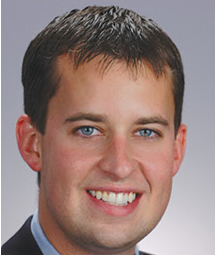
Troy M. Filipek, MAAA, FSA, FCA Principal and Consulting Actuary, Milliman
Turned onto the profession by his father’s work at Northwestern Mutual, Troy Filipek said he has been guided by the famous aphorism that “luck is what happens when preparation meets opportunity.”
Indeed, “My career has been a series of events in being ready when opportunity knocks,” he said.
It’s perhaps not a surprise, then, that with a work ethic like this, right out of the playbook of Green Bay coaching legend Vince Lombardi, Filipek is a diehard Packers fan.
He has actively engaged with health-related issues since early in his career, including participating on the Academy’s Medicare Steering Committee and several Medicare Part D work groups.
Age: 38
Current employer and location: I am one of seven partners in the Chicago-Milwaukee health practice of Milliman, where we have almost 200 health professionals who are primarily actuaries by trade. I work primarily out of the Milwaukee office.
Current job title: Principal and Consulting Actuary.
Actuarial volunteer experience: Volunteered on a number of committees and workgroups over the course of the past 15 years, including the Academy’s Medicare Steering Committee and several Medicare Part D work groups.
Previous jobs in the field: Internships at PricewaterhouseCoopers and Northwestern Mutual.
When you were a kid, what was your “dream job” going to be? Head of statistics for the National Basketball Association.
What made you interested in becoming an actuary? I loved math and business growing up. My father knew about the profession and suggested it as something to explore.
Are there any mentors particularly important to your career? First, my father was a financial representative for Northwestern Mutual and knew several actuaries. Nobody has had a larger influence on me as a business professional than my dad. Secondly, several teachers at my high school knew about the profession and helped pique my interest. Lastly, Margie Rosenberg from the University of Wisconsin was a professor of mine for several classes and was instrumental in teaching me about the profession (and how to pass actuarial exams ).
What are you working on right now that you think is interesting? Pharmaceutical system reforms being discussed extensively in Washington, D.C.
What do you think will be different in the profession 10 years from now, and what will be the same? I expect computing technologies to continue to vastly improve over the next 10 years, which will allow us to do more with fewer resources. Ultimately, though, I don’t see the actuarial profession being diminished or downsized by technology. The desire to assess and analyze risk is only going to continue to increase over time, which plays to our strengths. While more and more will be able to be done by machines, the element of human thinking and the value of our experience will only increase in need, not be mitigated by technology. I also expect a significant increase in workforce diversity over the next 10 years, in part due to some of the concerted efforts by the industry today, which will pay long-term dividends for the profession.
If you could share one thought with new actuaries on their first day, what would it be? Finish your exams as quickly as possible and ask lots of questions on the job.
What’s your favorite book, TV show, or movie? I am a diehard Wisconsin sports fan—Badgers, Brewers, Bucks, Packers—and attend/watch games frequently.
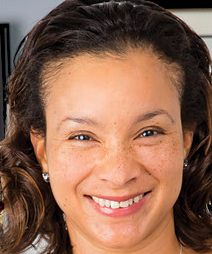
Jamala Arland, MAAA, FSA Vice President and Actuary, Long-Term Care Inforce Management, Genworth
Though currently focused on long-term care, Jamala Arland has worked across disciplines as an actuary, including annuity product development and life financial reporting. She credits this willingness to try new things and learn new skills as the reason she has succeeded so far.
“Although I have never been in a formal rotation program, the opportunity to gain experience in different products and functions has been extremely valuable,” she said.
Working together with others is part of what brings Arland satisfaction in her work, whatever the duties.
“One of the unique challenges of my current role is a balance of the technical actuarial concepts and effective communication, both internally and externally,” she said. “What I enjoy most about my role is that it truly requires cross-functional collaboration to get the job done, which presents a lot of opportunities for learning.”
Age: 37
Current employer and location: Genworth in Richmond, Va.
Current job title: Vice President and Actuary, Long Term Care Inforce Management
Actuarial volunteer experience: I have served on the Academy’s Long-Term Care Reform Subcommittee since 2016, where I have contributed to a couple of issue briefs and other reviews. Additionally, it was an honor to be voted to the Society of Actuaries’ Long-Term Care Insurance Section Council in 2017. I have also been a volunteer with the International Association of Black Actuaries since 2003, serving as secretary, treasurer, and vice president.
Previous jobs in the field: During college, I completed two actuarial internships in my home country of Barbados and one in New York City. After I graduated from the University of Waterloo in 2003, my first job was at Ernst & Young in New York City. The foundational experience I gained there has been invaluable, and I made many lifelong relationships.
When you were a kid, what was your “dream job” going to be? (I double-checked with my mother because I don’t recall any whimsical ideas about what I would be when I grew up…) If I did not become an actuary, I may have been an architect. One of my favorite classes in high school (besides mathematics) was technical drawing.
What made you interested in becoming an actuary? My mother was acquainted with Stephen Alleyne (deceased), who was the first Barbadian actuary. He was kind enough to take time to tell me about what I could expect in the profession and explain the path. Although I am certain I didn’t understand exactly what an actuary did at the time, I was excited about a career that allowed for practical application of mathematical, analytical, and statistical concepts in a business context.
Are there any mentors particularly important to your career? I strongly believe that the mentoring and advocacy relationships I have developed over the years have been of critical importance to my career. These types of relationships started with my high school mathematics teacher, at Queen’s College in Barbados, who helped foster a love and curiosity for problem-solving; she was also a strong supporter during my college decision process. Two constants for more than 10 years have been my first actuarial manager at Genworth and a former Genworth executive who had leadership roles in IT, product development, and strategy. They have both been sources of broad perspective and knowledge and have been guides in all my big decision points and many smaller ones.
Is there one moment or project that you think was pivotal to making your career what it has become? Often progress is thought of in terms a singular direction—such that it can be very difficult to take what may be perceived as a step backward in order to move forward. This was a critical lesson for me, and I was lucky to have excellent mentors who coached me through this. After earning my fellowship and advancing within the variable annuity pricing team, the financial crisis in 2008 impacted the long-term potential in that area. Not having much practical and leadership experience in any other areas, I had to make a choice: keep the trappings of my current role (i.e., an office and a small team) or make a lateral move that would give me the opportunity to broaden, but which meant going back to being an individual contributor and moving back to a cubicle. The choice isn’t obvious, and I have seen other people become stagnant in their career because of the fear of the stigma of a perceived demotion. One of my mentors drew a matrix of insurance products and actuarial functions, which clearly pointed out the gaps in my experience; he encouraged me to gain meaningful experience in as many of the combinations as possible. I strongly believe my career trajectory would have been permanently stunted if I did not value learning and development over promotions.
What’s your favorite book, TV show or movie? I am an avid fan of Jane Austen, and Sense and Sensibility is by far my favorite book of all time—I have read it multiple times. I greatly admire Jane Austen for being a woman ahead of her time. The TV shows I watch are a stark (and embarrassing) contrast to the books I read—mostly in the reality genre. Everyone needs a guilty pleasure!

Kate Foucault, MAAA, FSA Senior Director of Actuarial Services, Centene
Another bright actuary in the health field is Kate Foucault, who credits her success to an eagerness to keep learning—including from her mistakes.
“There’s always more to know,” she said.
It’s not just about knowing the latest professional standards, either, or the answers to the latest exam.
“Never stop asking questions and learning,” Foucault urged her fellow actuaries. “You’ve joined an industry where you’re learning and taking exams even after college. Don’t let that stop after you [get your credentials]. Keep learning.”
Age: 33
Current employer and location: Centene in Woodland Hills, Calif.
Current job title: Senior Director, Actuarial Services
Actuarial volunteer experience: Academy Medicare Subcommittee; Society of Actuaries FSA exam grading/sorting. I also organize volunteering events for the actuarial department in the Woodland Hills office.
Previous jobs in the field: Large group pricing for Trustmark Insurance; commercial individual trend analysis for Humana; Medicare pricing for Humana.
When you were a kid, what was your “dream job” going to be? I remember wanting to be a lot of things when I was little, but the one that sticks out is a judge. Most kids want to be something like an actress or a firefighter or a painter, but I wanted to be a judge for a while. I guess I really liked the idea of being in charge of right and wrong and ensuring fairness.
What made you interested in becoming an actuary? I majored in mathematics at Loyola University and wasn’t sure what to do with it. At the end of a statistics course, a professor said, “There! Now you know everything you need to know to pass the first actuarial exam.” So I figured it was worth a try. When I passed Exam P on the first try, I figured this was probably what I was meant to do.
Are there any mentors particularly important to your career? He probably doesn’t know this, but my first boss at Humana, Johnathan Chernick, was a great mentor. He was the perfect mixture of pushing me hard but still supporting me. He’s what I try to emulate when managing my people.
What was one moment pivotal to making your career what it has become? My first bid season at Humana, I made a mistake. We filed a plan such that low-income members had to pay a monthly premium of a few dollars. Even though it was approved by [the Centers for Medicare and Medicaid Services], that mistake really made me realize how complex Medicare is, and it pushed me to learn more. Since then I’ve really enjoyed learning the ins and outs of Medicare—which seem to change every year!
What are you working on right now that you think is interesting? My current role at Centene is really exciting right now. They are new in the Medicare space and we are building everything from the ground up. It’s a chance to broaden my understanding of Medicare all the way from contracting through claims configuration.
What do you think will be different in the profession 10 years from now, and what will be the same? I think the line between actuaries and data scientists will start blurring. I see a lot of potential in the area of Big Data that actuaries can learn to play in.
What’s your favorite book, TV show or movie? I read a lot, so it’s hard to pick a favorite book. But I’ve really been enjoying the author Fredrik Bachman.
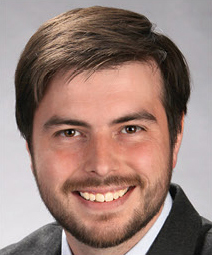
Joe Allen Allbright, MAAA, ASA Associate Director, Health & Benefits, Willis Towers Watson
Joe Allen Allbright works as a consulting actuary for employer-sponsored health care plans and is excited about the future of the profession.
The combination of math and technology expertise that is required right now admittedly means the work isn’t for everyone, but he says the increasingly specialized nature of the profession places an even greater importance on the actuaries who have the necessary skills.
He points to work with programmers and data scientists as particularly important, and notes that he’s excited about working alongside trends like automation and Big Data—not intimidated by them.
Age: 32
Current employer and location: Willis Towers Watson (recently moved from working in-person in the Pittsburgh office to working from home in Baltimore—I go into the D.C. office once a month)
Current job title: Associate Director, Health & Benefits
Actuarial volunteer experience: I am currently the chairperson of the Academy Health Practice International Committee and a member of the Academy Health Practice Council. The HPIC focuses on bringing information about international health care topics to members of the Academy and liaising with international colleagues on key initiatives.
Previous jobs in the field: Senior products analyst at Humana; pricing, premium analytics, and regulatory analytics at BCBSMA,; consultant at Willis Towers Watson.
When you were a kid, what was your “dream job” going to be? Mathematician. It took me until I was halfway through college before I realized that “mathematician” alone wasn’t a job. I could go into teaching, or work in applied mathematics—but no one pays you to solve problems for fun.
What made you interested in becoming an actuary? Northeastern University had a very strong co-op program, so I was able to graduate with four six-month internships. This gave me the time to learn about what jobs I enjoyed (and more importantly, what I didn’t enjoy) well before I graduated. My internship at Blue Cross Blue Shield of Massachusetts helped me decide to pursue a career as a health care actuary.
Are there any mentors particularly important to your career? Because so many people are intimidated by math, there’s a lot of opportunity for the few of us who aren’t. My second-grade teacher, Jill Lester, taught me how to find square roots using counting blocks. The feeling that I had secret knowledge that even older students didn’t helped to give me the confidence I needed to ride out the inevitable periods of frustration and understanding that all math learners encounter.
What was one moment pivotal to making your career what it has become? Nearly every position I held culminated in the creation of some big Excel tool. The FirstRate underwriting model at First Indemnity, the “Pluck-o-sum” bid population tool at Humana, the Trusted Blue Advisor ACA Model at BCBSMA—all of these were great opportunities to learn new things and expand my role. Many of these models stayed in use long after I moved on.
What are you working on right now that you think is interesting? I’m currently working on a model to help large employers evaluate the potential savings they could realize by directly negotiating accountable care organization (ACO) or narrow network arrangements with providers.
What do you think will be different in the profession 10 years from now, and what will be the same? I’m excited about automation! The more powerful our tools become, the more important it will be to have actuaries who can design new methods and interpret the results. Those are the two families of actuarial skills I imagine will be in the most demand: programmers and data scientists on the one hand, effective communicators and industry experts on the other.
If you could share one thought with new actuaries on their first day, what would it be? Find the thing no one else is doing, and become an expert at that. If everyone is doing things manually, be the programmer. If everyone is a great programmer, be the best communicator.
What’s your favorite book, TV show or movie? Favorite book—The Count of Monte Cristo. I reread it about once a year.
CASUALTY
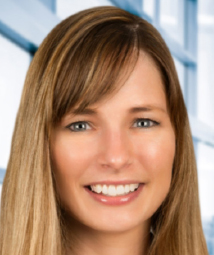
Darcie Truttman, MAAA, ACAS Consulting Actuary, Pinnacle Actuarial Resources
As a young girl, Darcie Truttman really just wanted to help animals but was ultimately too squeamish to become a veterinarian. As a consulting actuary, however, she has found a great home for her desire to help others—and put her problem-solving skills to good use.
Truttman places great emphasis on the importance of collaboration and communication to move beyond simply quantitative analysis in her work.
She credits her love of math to leading her to the actuarial profession, but says learning how to manage projects helped her understand her abilities to be more than “just an analyst,” and to “see the bigger picture” and the role she plays in helping clients achieve success.
Age: 37
Current employer and location: Pinnacle Actuarial Resources Inc., Bloomington, Ill.
Current job title: Consulting Actuary
Actuarial volunteer experience: I volunteer on the Member Advisory Committee for the Casualty Actuarial Society.
When you were a kid, what was your “dream job” going to be? When I was a kid, I always thought I was going to grow up to be a veterinarian because I love animals so much. That was until I realized the sight of blood makes me feel slightly—OK, very—lightheaded. Luckily, I have always enjoyed math too, so I had a fallback plan.
What made you interested in becoming an actuary? Once I realized my future as a veterinarian was in serious jeopardy, I began to explore different career options involving math. The first time I heard about actuaries was when I was a senior in high school and a graduate came back to visit our class to tell us about her actuarial career. She made me realize there was an entire professional path that would allow me to not only work with numbers every day, but continue to learn new ways and concepts to manipulate and use all of these math principles I enjoy so much.
Are there any mentors particularly important to your career? I’ll go back to the first person to make me really love math: Mr. Phillips, my high school math teacher. He had a wonderful teaching style, which made me really love (almost) everything about math.
What was one moment pivotal to making your career what it has become? I would say when I was first given the role as project manager. That was a pivotal change for me. That project led to me fully realize that being a consulting actuary was not only something I could do well, but was something I wanted to do in the very near future.
What are you working on right now that you think is interesting? We’ve had several projects that have required us to price coverages that aren’t in the standard market. You really have to think about the risks involved and the exposures that are covered to fully understand what is being priced.
If you could share one thought with new actuaries on their first day, what would it be? Take every opportunity to learn from your mentors and peers, and to fully understand the different projects you’re working on. The rest of the time, study.
What do you think will be different in the profession 10 years from now, and what will be the same? The actuarial profession will continue to adapt by coming up with more automated processes to set up analyses. Just like pencil-and-paper calculations, I think large, clunky spreadsheets will become a thing of the past. However, I do foresee the continued need for the actuary’s critical role in reviewing, interpreting, and communicating these automated results in an understandable way.
What’s your favorite book, TV show, or movie? Friends and The Office.
RISK MANANGEMENT / FINANCIAL REPORTING
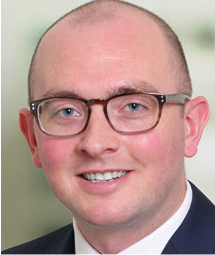
Kyle Stolarz, MAAA, FSA Manager, Insurance and Actuarial Advisory Services, Ernst & Young
Some outside observers may assume that actuaries are all about the numbers. But Kyle Stolarz notes that some of the most important things he’s learned on the job are actually softer skills, including “coaching, organization, and communication.” A few decades ago, those kind of traits wouldn’t have been seen as an incredible asset in the profession—but in 2018, they are all necessities.
Beyond the day-to-day duties of the job, Stolarz also points to the importance of interpersonal communication as a path to a successful career. Taking the time to connect with colleagues pays off beyond whatever immediate social benefit you may glean.
“The actuarial community is very small, and you never know when you will cross paths with someone later on,” he said.
Age: 31
Current employer and location: Ernst & Young LLP, Chicago
Current job title: Manager, Insurance and Actuarial Advisory Services
Actuarial volunteer experience: Member of the Academy’s Financial Reporting Committee
Previous jobs in the field: Director of Product Management at Resolution Life
When you were a kid, what was your “dream job” going to be? I grew up watching Seinfeld and had the same dream as George Costanza: to become an architect.
What made you interested in becoming an actuary? When I was a freshman in college, I was attracted by the idea that I’d need to pass a series of exams in order to become an actuary. I’ve always enjoyed a challenge, and it seemed like a good way to test my math skills. Many exams later, including some failures, I fulfilled my goal of becoming a credentialed actuary.
Are there any mentors particularly important to your career? To name a few: I gained a keen eye for detail from Michael Speedling, writing skills from James Collingwood, an appreciation for team-building from Kush Kotecha, a love for teaching from Asad Khalid, and the drive for continuous development from Ying Zhao.
Is there one moment or project that you think was pivotal to making your career what it has become? In my third year, I was on a project where I was asked to work directly with a very senior client. I was way outside of my comfort zone and was not confident in my ability to succeed. After a lot of hard work and coaching, we delivered a very successful project. The experience gave me both the self-confidence and skills to use in other projects going forward. It was a turning point for me—I felt more comfortable stepping outside of my comfort zone to take on new challenges.
What are you working on right now that you think is interesting? I’m currently working with clients on accounting change—more specifically, International Financial Reporting Standard (IFRS) 17 and long-duration targeted improvements. IFRS 17 is a brand-new standard that requires a lot of interpretation and critical thinking. There’s no industry practice to fall back on when you are unsure of how to apply certain paragraphs of the standard. There have been plenty of nights where I’ve gone to bed confused or frustrated. It’s a great feeling the next day when you have an “aha moment” and find a solution. IFRS 17 also impacts the entire insurance organization, and I’ve worked closely with many people who are not actuaries.
If you could share one thought with new actuaries on their first day, what would it be? Take the initiative to meet as many people as you can, and don’t be afraid to introduce yourself to more senior actuaries. I’m convinced it’s the reason I got my first internship at EY.
What’s your favorite book, TV show or movie? Good Will Hunting.
GOVERNMENT
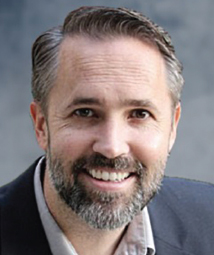
Weston Trexler, MAAA, ASA Product Review Bureau Chief and Actuary, Idaho State Department of Insurance
Weston Trexler grew up scrutinizing baseball statistics, and he originally wanted to be an engineer. But personal connections to people in the insurance industry introduced him to the profession—and he knew almost right away it was a perfect fit.
“The career seemed to encompass varying skill sets including mathematical, technical, business, and communication,” Trexler said.
To younger actuaries, balancing an array of skills beyond simply crunching numbers is important to their professional development and personal satisfaction in the job. It’s also this unique mix of skills that will help actuaries thrive in an environment increasingly reliant on technology, he said.
“Instead of job losses, I expect such automation may help actuaries be even more rigorous and thorough,” Trexler said.
Age: 37
Current employer and location: State of Idaho, Department of Insurance in Boise
Current job title: Product Review Bureau Chief and Actuary for the Department
Previous jobs in the field: Prior to working for the state, I was an associate actuary at Milliman’s Boise office.
When you were a kid, what was your “dream job” going to be? I had two main interests as a kid—baseball and computers, so as my dream of being a professional baseball player faded, I wanted to work with computers, perhaps as an engineer or in software development.
What made you interested in becoming an actuary? I was attracted to the opportunity to work with and leverage complex information, evaluate ways that the future may differ from past data, and then to bridge the information gap with less-technical audiences, hopefully improving outcomes in a variety of ways.
Are there any mentors particularly important to your career? A university professor I had certainly bolstered my appreciation for the importance of clearly communicating technical information. Through his enthusiastic storytelling, he instilled how rigorous statistical analysis is necessary but not always sufficient, as poorly conveyed information can be just as detrimental as wrong information.
What was one moment pivotal to making your career what it has become? I’m sure I’m not the only one who saw the passage of the Affordable Care Act as an opportunity to grow professionally. I was working for a consulting firm at the time and was able to dive into understanding the impacts of the ACA to employers of all sizes, as well as the health insurance markets more broadly. My current position as a regulatory actuary for the Idaho Department of Insurance was created in response to the ACA, and I was uniquely situated to fill the position at that time.
What are you working on right now that you think is interesting? I am involved with several groups of regulatory actuaries who are working on various topics, such as the review of long-term care rate increases, changes to Medicare supplement policies, and the implementation of new federal regulations regarding short-term health coverage, association health plans, plus ongoing changes to the individual and small group market rules.
What do you think will be different in the profession 10 years from now, and what will be the same? I expect the actuarial profession may see stronger intersections with, for example, data scientists, as insurance and other companies work to further leverage any predictive power of the large datasets they house. I hope to see more actuarial involvement in public sector fiscal and risk management. A critical portion of the actuarial profession that I expect will see little change is our continued responsibility to clearly communicate the value and appropriateness of actuarial data or findings toward any given objective.
If you could share one thought with new actuaries on their first day, what would it be? Perhaps it would be to go ahead and ask stupid questions. I recognize in myself a desire to have all the answers and not have to ask questions, but I’ve learned the most when I’m willing to be taught by asking “stupid” questions.
What’s your favorite book, TV show or movie?:This is always a moving target for me, so I’ll just go with Sapiens: A Brief History of Humankind by Yuval Noah Harari, as I’m currently reading its sequel, Homo Deus: A Brief History of Tomorrow.

Sherry Chan, MAAA ,FSA, FCA, EA Chief Actuary, New York City Office of the Actuary
From an early age, Sherry Chan wanted to reach for the stars—either the five stars of a top restaurant, or the stars above as an astrophysicist. But eventually, her love of math led her to actuarial science after reading a brochure in Ohio State’s math department.
“The more I read about it, the more I loved the blend of business with math and how I could use my beloved math skills in a corporate setting,” she said.
But like so many recent grads led to the job by numbers, Chan quickly learned how important and satisfying it can be to work alongside talented actuaries who can teach so much more than math skills. These mentors pass on a piece of themselves, ensuring the next generation of actuaries will be even better than the last.
Chan points to a number of “angels” in her career who provided the encouragement and support “to keep pursuing opportunities that align with my career appetite, momentum, and potential.”
Age: “<40”
Current employer: New York City Office of the Actuary
Current job title: Chief Actuary
Actuarial volunteer experience: American Academy of Actuaries—Public Plans Committee, incoming chairperson; International Actuarial Association—IACA Younger Actuaries Subcommittee, chair
Previous jobs in the field: Ohio Public Employees Retirement System—chief actuarial officer; State Teachers Retirement System of Ohio—chief actuary; various roles at MetLife, Willis Towers Watson, Nationwide
When you were a kid, what was your “dream job” going to be? There was a phase in high school where I wanted to be an orchestral flautist (I was in the Columbus Symphony Youth Orchestra in high school). Then I dreamt of being a Michelin-starred executive chef (my father, who himself was an executive chef, advised against a career in the kitchen). Afterward, I really wanted to be an astrophysicist for NASA, computing all the math that helps put astronauts into space.
Are there any mentors particularly important to your career? I believe that behind every successful person is a great village. Some call them mentors, some call them sponsors—I like to call them angels because they were the people that looked after me and proactively contributed to help me be where I am today.
The first angel I would say is my high school calculus teacher. He was a very strict and disciplined teacher and a firm believer of the “no pain, no gain” philosophy. My learning style really synced with his teaching style, and I attribute to him my fundamental advanced math skills that have enabled me to pursue this STEM career.
The next angel would be the director of actuarial science at OSU. He encouraged me to and supported me in applying for actuarial scholarships when I was in college, he suggested I run for the president’s position of the OSU Actuarial Club.
Later, my boss at STRS Ohio really changed the trajectory of my career. Through my interviews, he saw the potential in me, went with his gut, and gave me the opportunity. I worked under him for over six years until his retirement. Finally, I have a mentor who grew up in a small town in Ohio, went on to be the CEO of a private Forbes 500 company that was her family business that literally started in the garage and grew to a billion-dollar company, and is currently pursuing her own career dreams. She embodies the Midwestern warmth, always willing to help others out, especially those trying to pursue their own dreams. I see in her much of who I am and who I aspire to be—from her upbringing to her values to her passion. All these mentors inspire me to think big.
What was one moment pivotal to making your career what it has become? At STRS Ohio, I was in the right place at the right time when I became chief actuary. I got into public plans right before the Great Recession and was so involved with redesigning plan provisions in light of the turn in the markets and assets—which in hindsight was like a crash course in public pension plans.
What are you working on right now that you think is interesting? Given my passion for this job, I find a variety of my projects interesting, be it sitting on the OSU’s Math Advisory Board and discussing how to recruit more women into the profession (from which a girls’ summer math camp was born!), submitting writings to The New York Times, The Wall Street Journal, and other publications, helping the New York State Legislature price out pension legislative changes, or “simply” calculating the pension contributions for the three-quarters of a million past and present NYC public servants. All this work has one common goal: to make sure the public is taken care of.
If you could share one thought with new actuaries on their first day, what would it be? First, get through your exams. The sooner you get through them, the sooner you can focus on other aspects of and build on your career. Also, don’t be afraid to ask questions. Sometimes that’s the only way to learn something. And along those lines, learn as much as you can. Read the news or read a book, meet and network with people, enroll in classes, etc. Lastly, while it’s definitely important, especially as an actuary, to see the trees, try to also see the forest. This skill will undoubtedly have manifold returns.
What’s your favorite book, TV show or movie? One of my favorite books is Stiletto Network by Pamela Ryckman. Further to my belief that behind every successful person is a village, this book shares “story after story of women banding together to help other women.”
JEFF REEVES is a financial journalist with almost two decades of newsroom and markets experience. His commentary has appeared in USA Today, U.S. News & World Report, CNBC, and the Fox Business Network.




